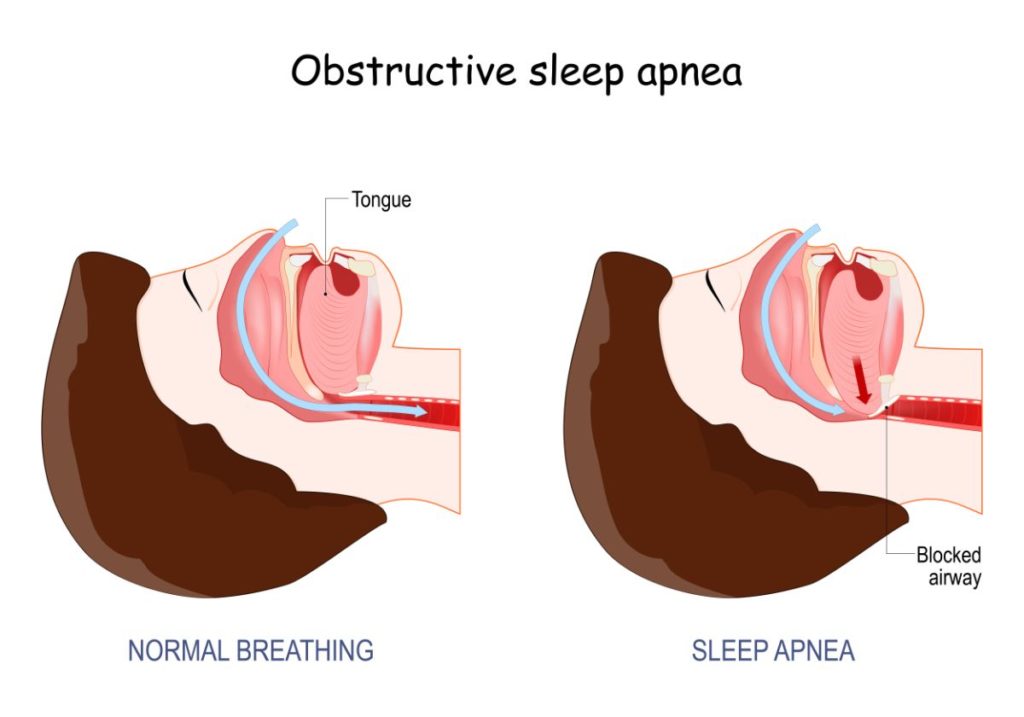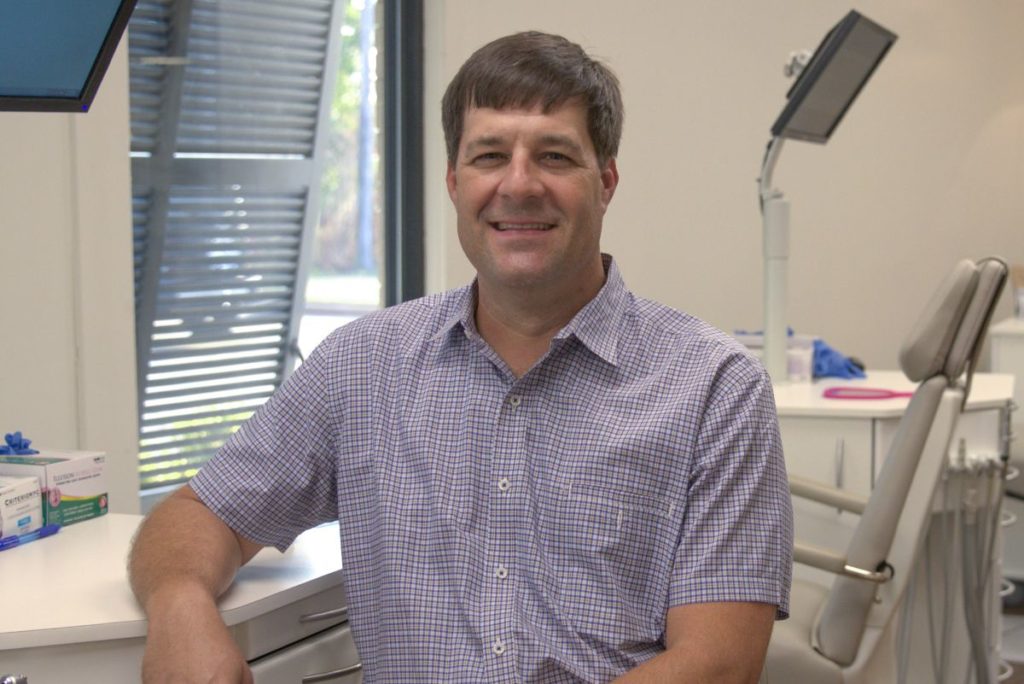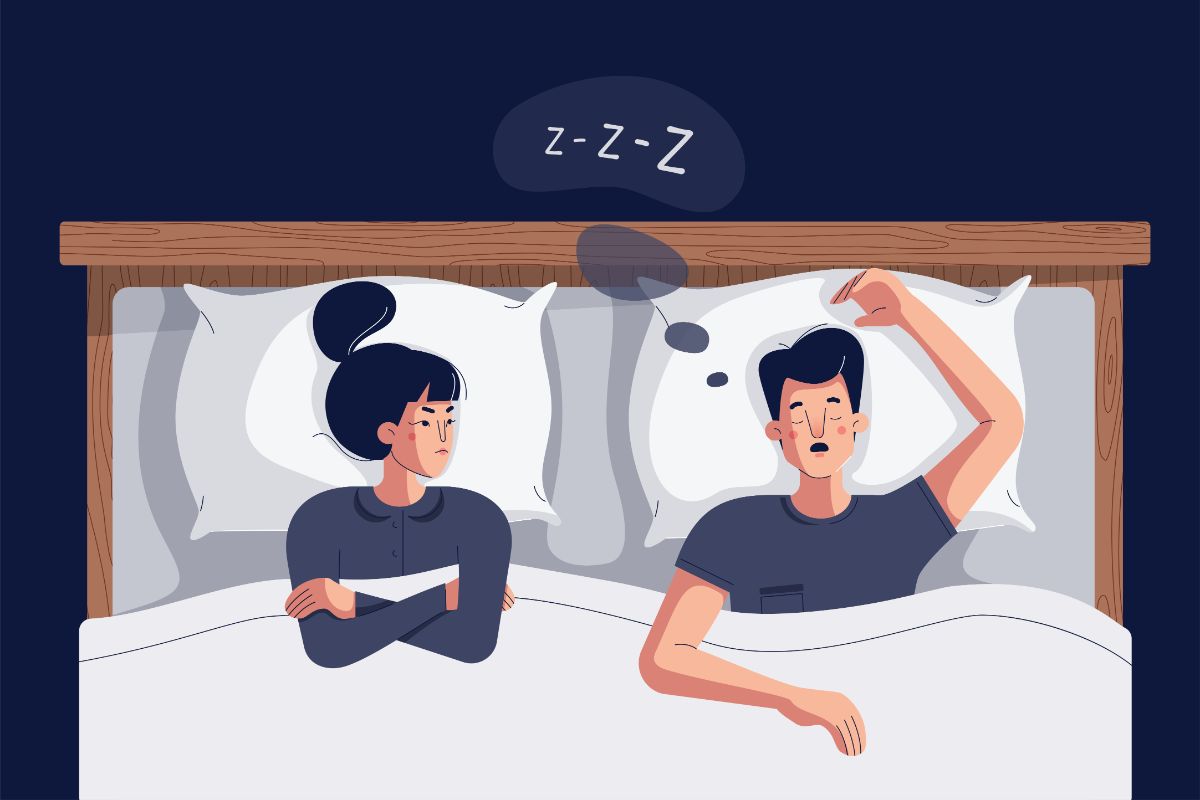It is no secret that your body does much of its healing and repair while sleeping, but did you know that your oral health can dramatically affect your sleep quality? If you are having trouble sleeping due to teeth grinding, sleep apnea, or snoring, there is a good chance that orthodontic treatment can help change that.
Along with his expert team at Petrunic Orthodontics, Dr. Chris Petrunic sees many patients who are frustrated with their traditional treatment plans for sleep apnea, like CPAP machines. They are dedicated to providing customized treatments for each of their patients in a way that makes them feel listened to and comfortable through the whole process. In many cases, our team can create an individualized orthodontic treatment plan that gets you back to sleeping like a baby. Let’s take a look at how orthodontic treatment can help your sleep issues.
How sleep apnea affects your health
While you sleep, your mouth and jaw muscles relax with the rest of your body. This relaxation is entirely normal, but the issue arises when you sleep on your back, causing your jaw to slide backward, narrowing the throat. As you try to breathe through that constricted space, the sound of snoring is produced. Snoring is not something to ignore as it could be a sign of obstructive sleep apnea.
Another factor affecting your snoring and sleep apnea could be related to your bite or the alignment of your jaw and how your teeth meet when you close your mouth. Bite problems are common and can be an overbite, where your upper front teeth extend over your lower front teeth, an underbite, where your lower front teeth rest in front of your upper front teeth, or an open bite, which is when your upper and lower front teeth do not meet at all. For most people, traditional braces can correct your bite problem relatively quickly. They will also remove obstructions to create better airflow through your mouth, alleviating your snoring and sleep apnea concerns.
For some people, you may not have actual sleep apnea but instead experience pain in and around your ear, jaw pain, headaches, difficulty chewing, and temporomandibular joint pain that can be contributed to your bite issues and cause other concerns like Temporomandibular Joint Disorder or TMD.
TMJ/TMD
Your temporomandibular joints connect your lower jawbone to your skull. These joints get a lot of use throughout the day as you speak, chew, swallow, and yawn. Pain in and around these joints can be unpleasant and may even restrict movement. Not all jaw pain is associated with TMD, though. Tell your orthodontist at your next appointment if you notice any pain in addition to ear ringing, head and neck aches, clicking or popping sounds in your jaw, muscle spasms, alignment changes, or lockjaw. They can help determine if you have TMD and create a customized treatment plan to help relieve your symptoms.
Most people get TMD without ever having braces. Symptoms usually come and go regardless of whether braces are worn, but there are solutions if you find yourself experiencing any issues as described above.
If you do not have Temporomandibular Joint Disorder, you can take many preventative steps to maintain a healthy, strong smile.
- Relax your face – “Lips together, teeth apart.”
- Avoid grinding your teeth
- Avoid all gum chewing
- Chew foods even on both sides of your mouth
- Do not sit with your chin rested on your hand
- Practice good posture – keep your head up, back straight, and shoulders squared
- Do not cradle the phone receiver between your head and shoulder

Other orthodontic treatment options besides braces
Not all sleep issues are created equally, and because of that, we can utilize more than just traditional metal braces for some mouth and jaw issues contributing to your sleep problems.
A Rapid Palate Expander, or RPE, is a device placed on the roof of the mouth and used to widen the upper jaw. This appliance is typically used as a treatment for children since their mouths and palate are still not fully formed and can easily be manipulated. Frequently, when a child’s mouth does not appear wide enough to accommodate the adult teeth, this RPE can be used without braces to provide spacing support for those teeth to come in correctly. This palate expander creates space allowing better airflow through the mouth, helping ease or even prevent sleep apnea.
Another notable option is using custom oral appliances to keep the jaw in a forward position and keep airflow unobstructed. Two different methods of custom oral therapy vary only slightly, with one having an extra piece to help position your tongue correctly. This option is called a tongue retaining mouthpiece. The other therapy option is the mandibular advancement device which moves your lower jaw forward and tightens the soft tissues of the upper airway, preventing airway obstruction.

Your best sleep is waiting for you at Petrunic Orthodontics
At Petrunic Orthodontics, we are committed to providing you with the best information and the best options for your specific needs. We want you to take pride in your smile and have a lifetime of successful sleep to be the healthiest you possible.
Through state-of-the-art orthodontic care and a welcoming environment, our team will have you smiling with the brilliant, confident smile you’ve always wanted in no time. Our modern Prattville, AL office is conveniently located, so great orthodontic care is only a few minutes from your home, work, or school.
We know wearing braces and other oral devices can be uncomfortable, but creating a proper bite young can create excellent health in the long run. If you face sleep issues like sleep apnea or TMJ, we look forward to helping you achieve the beautiful, show-stopping smile you’ve always wanted. Start your smile journey with a FREE consultation exam today.

